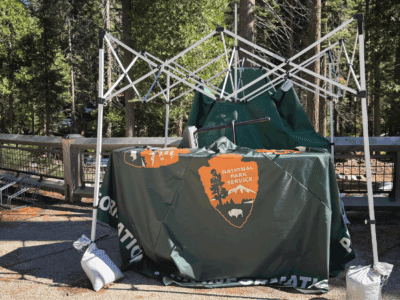War and the Environment

Memorial Day is an apt date to think about how wars, along with their other tragic costs, impact the environment. As Peace Pledge reminds us:
Images of devastated battlefields are all too familiar. A German officer in 1918 described ‘dumb, black stumps of shattered trees which still stick up where there used to be villages. Flayed by splinters of bursting shells, they stand like corpses upright. Not a blade of grass anywhere. Just miles of flat, empty, broken and tumbled stone.’ The ploughs in Flanders fields still turn up human bones every year.
The photo to the left gives a sense of the devastation. More recently, as the Sierra Club explains:
A telling example is the destruction of 35% of Cambodia’s intact forests due to two decades of civil conflict. In Vietnam, bombs alone destroyed over 2 million acres of land. These environmental catastrophes are aggravated by the fact that ecological protection and restoration become a low priority during and after war.
Only recently has the international legal system begun to take this harm into account. The U.N. claim commission established in the aftermath of the first Gulf War gave particular attention to claims of environmental harm, paving new ground in its efforts to measure damage to ecosystems. The UNCC was established after the first Iraq War to handle claims against Iraq for war-related damages. The U.N. Security Council held that Iraq “is liable under international law for any direct loss, damage, including environmental damage and the depletion of natural resources, or injury to foreign Governments, nationals and corporations, as a result of Iraq’s unlawful invasion and occupation of Kuwait. This directive gave rise to intense dispute about compensation for damage environmental resources and for interim damages to those resources prior to restoration. The UNCC ultimately held that these damages were compensable. One method used to measure the value of resources was the cost of mitigation measures – for example, creating new wetlands to replace those that were destroyed by oil spills. This was used as a way to measure the loss of ecosystem services. The UNCC awarded approximately $5 billion dollars for 109 successful claims.







Reader Comments